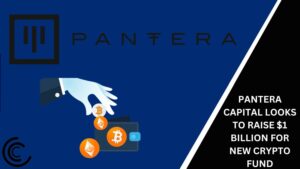Key takeaways
- From day-to-day information like assignments, attendance, and extracurricular activities to information about degrees and universities they’ve attended, blockchain technology could provide a great framework for managing student records.
- It would be a safe system that ensured the integrity of educational records.
On December 28, the Prime Minister presented the graduating IITians with their degrees in a blockchain-based, digital format, which was a first. We’ve only heard about blockchain technology in relation to cryptocurrency up until now. A technology that enables digital assets such as bitcoin and Ethereum. However, the potential for blockchain technology to alter other major areas may be a greater story. Education is one area where new technology has the potential to truly transform things.
The pandemic had an impact on educational institutions all across the world. While we hope that the physical presence of students and teachers will return to campuses, the pervasive use of digital technology in education is here to stay. Students are no longer limited by the instructional resources and learning opportunities accessible within the institutions’ physical limits thanks to blended learning and flipped classrooms. The new universe is yours to take, where you can access knowledge from all around the country, and even the planet.
India has set a high bar for itself through the National Education Policy 2020 (NEP-2020). The goal is to reach a 100% Gross Enrolment Ratio (GER) in school education by 2030 and to double it in higher education by 2035, to 50%. Our kids will, it is hoped, have more flexibility and topic options, with no hard boundaries between disciplines. To meet these lofty goals and deliver holistic and multidisciplinary education, we must invest in digital education and related technology.
Content production, teaching, assessments, grading, attendance recording, achievements, certificates, degrees, and diplomas are all important components of a strong Digital Education Ecosystem (DEE). A DEE can include stakeholders such as educational institutions, potential employers, mentors, and certification bodies. With increased digitisation comes the need for more secure and fool-proof systems that can track students’ academic activity while also providing the necessary information to all stakeholders. The blockchain may prove to be a feasible option for managing such a complex DEE.
The name “blockchain” comes from digital databases or ledgers in which information is recorded as “blocks” that are linked together to form “chains.” Each of the various computers or users connected in a network has an exact copy of the blockchain, and any new information added or altered via a new block must be verified and accepted by more than half of the total users.

Blockchain technology can now support breakthroughs across a range of processes and applications needing administration, storage, retrieval, and security of enormous and vital information, thanks to the Internet of Things (IoT) and the availability of cheap computing and internet services.
These include financial transaction information (such as cryptocurrencies), electoral voting, medical records, academic lessons, property ownership records, and professional testimonials. A decentralised structure ensures that the system and the data it stores are fraud-proof, transparent, and trustworthy.
From day-to-day information like assignments, attendance, and extracurricular activities to information about degrees and universities they’ve attended, blockchain technology could provide a great framework for managing student records. It would be a safe system that ensured the integrity of educational records.
Prospective educational institutions and recruiters may rely on these if they were given access to relevant records. Similarly, information on teachers can be carefully preserved, allowing an educational institution to keep track of their performance.
The blockchain ledger would provide a time-stamped and tamper-proof record of teacher performance, including attendance, student evaluations, the number of students choosing electives, research output, and publications. These recordings might be linked to faculty assessment systems, which would result in more responsibility.
The NEP-2020 advocates for the introduction of interdisciplinary education, in which students can choose their own combination of major and minor subjects, as well as the length of their courses. In this case, too, blockchain can assist in the implementation of a multiple-entry-and-exit structure. Students can also be confident in the quality of their teachers and educators.
It may allow educators to exhibit their certified Skill Badges, allowing students to make well-informed course choices. In the meanwhile, students, particularly those in higher education and research, might use Skill Badges to demonstrate their abilities.
This would allow professors to find the best students for projects. A blockchain ecosystem might potentially be utilised to create a scholarship system that rewards students for maintaining consistency and academic performance.
Blockchain adoption in education could assist increase the efficiency of the school ecosystem and optimise the utilisation of people and physical resources. Concerns like data privacy, cost, scalability, and interoperability with older systems will have to be addressed in the process.
It is well worth the money since it will help usher in a more secure, transparent, collaborative, creative, and future-ready educational system that can handle increasing enrolment.











